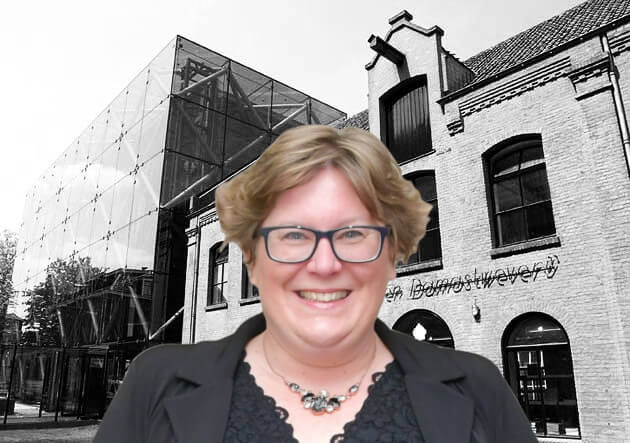
It suddenly landed here early this April. That wonderful Dutch term ‘anderhalvemetereconomie.’ As in ‘a-meter-and-a-half economy.’ (Dutch governmental guidelines stipulate social distancing should be at least 1.5 meters – not quite the US 6 feet limit, ed.)
Everyone who heard it was convinced: this would be the term of 2020. The meter-and-half economy is set to become the new normal. The old normal would be buried together with all the tragic victims of COVID-19.
Exactly twenty years ago, I had to write an essay for my General Economics studies at Tilburg University on the most-hyped economic term of that era: The 24-hour economy. At the time, the question was how an SME retailer could participate in an economy that no longer had a fixed closing time. How far does the importance of, and right to, rest and recreation extend?
Whereas it was the SME retailer who was primarily in danger of going under twenty years ago, the same SME retailer now holds the best cards in their hands. Where the 24-hour economy crept like a silent assassin into the shadowy corridors of the economy lobbyists, the meter-and-a-half economy sprang up like an earthquake. A sudden shock with a magnitude of 10 on the Richter scale. Such a violent shock calls for a fine feat of Darwinian entrepreneurship. The fast learners are the major leaders of the meter-and-a-half economy. As it happens, it is specifically SME’s who are the most agile of all on paper.
Turning toxins into treasure
Many scientific studies show that SMEs are more ‘agile’ (another fantastic fashionable management term). Due to their limited size and above all, their flat organizational structure, they can easily change the target of their arrows. Whenever the ever-changing surroundings demand it. In the words of Dutch rapper Akwasi: The entrepreneurs who can “van een gif een gift kunnen maken” (being able to turn toxins into treasure) are the winners in the meter-and-a-half economy. I see these winners popping up everywhere these past few weeks. Hotel owners who are transforming their hotel into a place to work in peace. Video production companies are now filming businesses so that they can be accessed online. Or shop owners who are introducing the concept of ‘private shopping.’
Yet by no means is every SME entrepreneur able to turn a toxin into a treat. Most SMEs are more agile on paper. But in practice, they definitely aren’t. In its SME action plan, the Dutch Ministry of Economic Affairs and Climate estimates that about 10 % of SME entrepreneurs are able to make an innovative sprint when needed. While around 90% are stuck in a peloton squad without any tailwind. And it is precisely this peloton, the broad-based SME group, that is now facing incredible difficulties due to COVID-19. Unless they can get some support. Why is it that some SME’s manage to keep the wind in their sails despite the wind changing direction? While other SME’s need the help of an outboard motor?
Three-stage rocket
According to David Teece’s well-known theory of ‘dynamic capabilities‘, successful entrepreneurship in a time of upheaval is like a three-stage rocket. 1) you must be able to see opportunities. (Sensing). 2) You must be able to seize opportunities. (Seizing). And 3), you must adapt your organization in such a way that you can keep the advantage that you’ve gained. (Reconfiguring or transforming). This sounds incredibly simple, but it clearly isn’t. Most SMEs already get stuck during that first step. In practice, this means that they’ll never be able to cash in on the advantage that they have on paper where maneuverability is concerned.
If you don’t see opportunities, you will never be able to take advantage of them. Seeing opportunities requires a broad palette of talent. You have to be able to scan your surroundings. You literally have to extend your antennae. And you need to be able to think creatively. Plus you must be able to learn and interpret new things.
Novel solutions
This also means that in this first phase of the three-stage rocket, it’s not just about having a good nose for opportunities, but also about rock-solid expertise and the requisite information. David Teece describes it as follows: “The ability to create and/or sense opportunities is clearly not uniformly distributed amongst individuals or enterprises. Opportunity creation and/or discovery by individuals require both access to information and the ability to recognize, sense, and shape developments. The ability to recognize opportunities depends in part on the individual’s capabilities and extant knowledge (or the knowledge and learning capacities of the organization to which the individual belongs) particularly about user needs in relation to existing as well as novel solutions (Teece, 2007, p. 1323).
Knowledge is power. Especially when the world has been turned upside down. I see a wonderful role for universities and universities of applied sciences in this. Surely now that they are offering all of their education online, that can just as easily be made accessible for those who so desperately need it? – If they are to see new opportunities in the meter-and-a-half economy? Or let science genuinely be applied science by enriching entrepreneurs with research focused on their respective cases. Let’s all work together to ensure that knowledge spreads as fast as COVID-19 so that entrepreneurs can turn toxins into treasure!
About this column
In a weekly column, alternately written by Hans Helsloot, Eveline van Zeeland, Jan Wouters, Katleen Gabriels, Mary Fiers, Peter de Kock, Tessie Hartjes and Auke Hoekstra, Innovation Origins tries to find out what the future will look like. These columnists, occasionally supplemented with guest bloggers, are all working in their own way on solutions for the problems of our time. So tomorrow will be good. Here are all the previous IO episodes.
Support us!
Innovation Origins is an independent news platform that has an unconventional revenue model. We are sponsored by companies that support our mission: to spread the story of innovation. Read more.
At Innovation Origins, you can always read our articles for free. We want to keep it that way. Have you enjoyed our articles so much that you want support our mission? Then use the button below:







